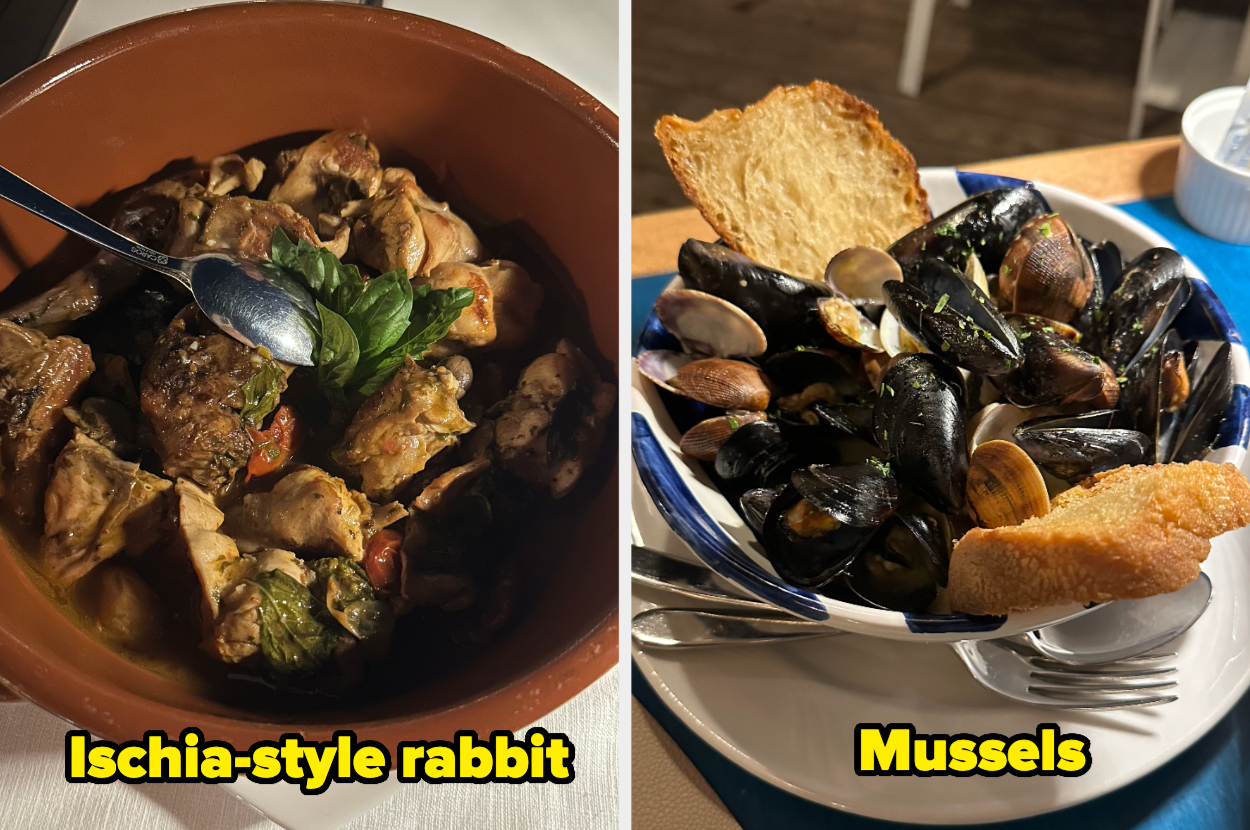Last month, my boyfriend and I traveled to Italy for a wedding. Luckily, I had already visited Italy with my family during high school, so this was my second visit to the country.

I was around 14 when my family and I traveled on our nine-day trip to Rome, Florence, and a few other cities. There is something to say about traveling at a younger age with your family and them handling all the planning and logistics of the trip.
In the past, I would simply go with the flow and never really thought about how we ended up at our destination. During that family trip to Italy, we relied on a tour group to handle a lot of the planning. However, when it came time to plan my own trip to Italy, I felt overwhelmed. Despite this, we managed to plan the entire trip on our own.
We were invited to a friend's wedding in Florence in early September and knew we wanted to extend the trip to be able to travel elsewhere in Italy. Although I had ample time to plan, I procrastinated and planned just about everything pretty last minute for an out-of-the-country trip.
We decided that we wanted to explore a beach town in Italy (something that had a different feel from a populated city like Florence). The island of Ischia — which is off the coast of Naples, not far from Amalfi Coast — was recommended to me by a travel agent friend, so we decided on that.
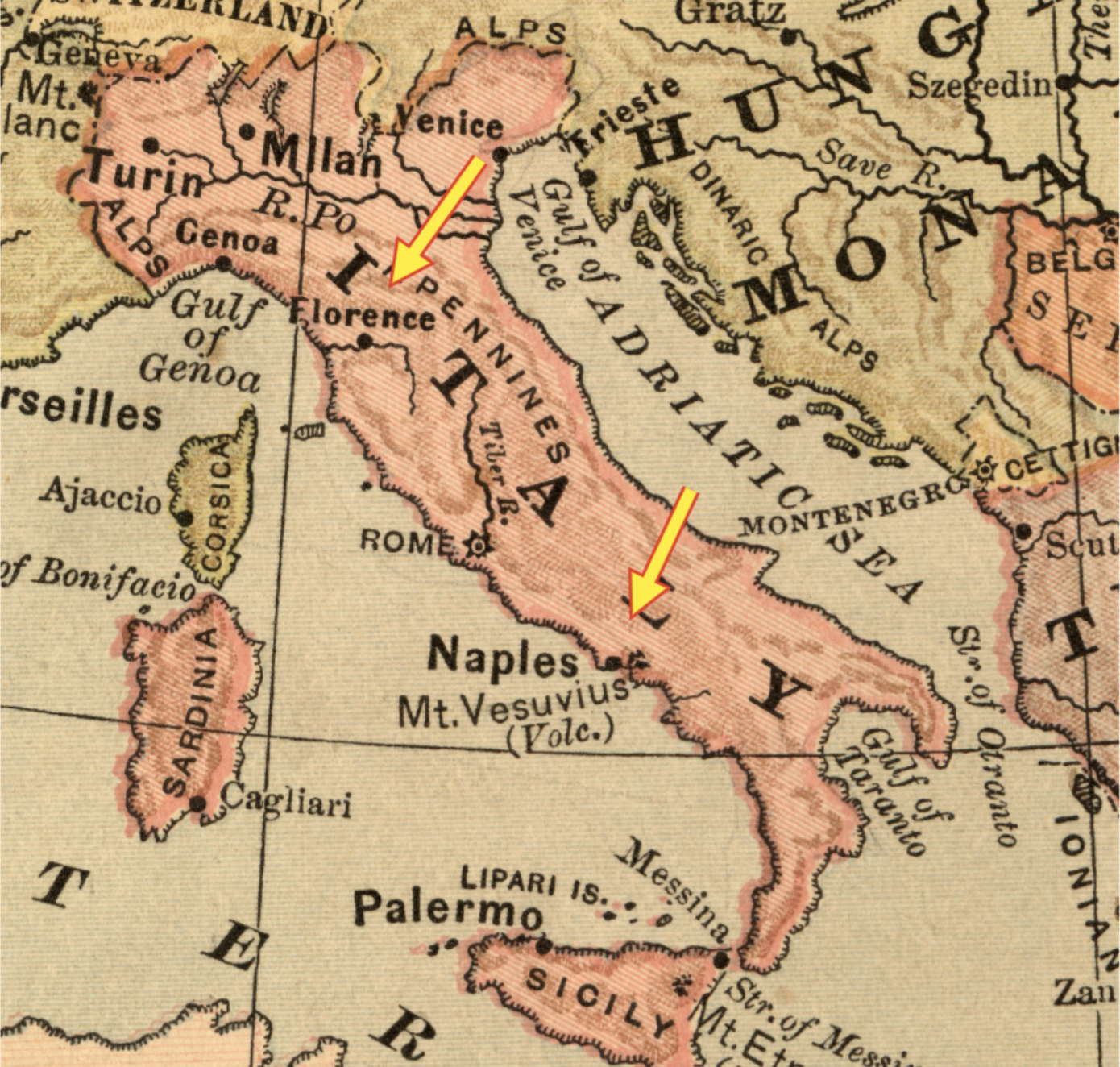
Overall, our trip was amazing and I cannot wait to go back to Italy — or another part of Europe. The experience taught me a lot, and I would love to share some of my takeaways whether you're looking for inspiration for your next trip or just have a passion for travel.
1. English is spoken in some parts of Italy more than others.
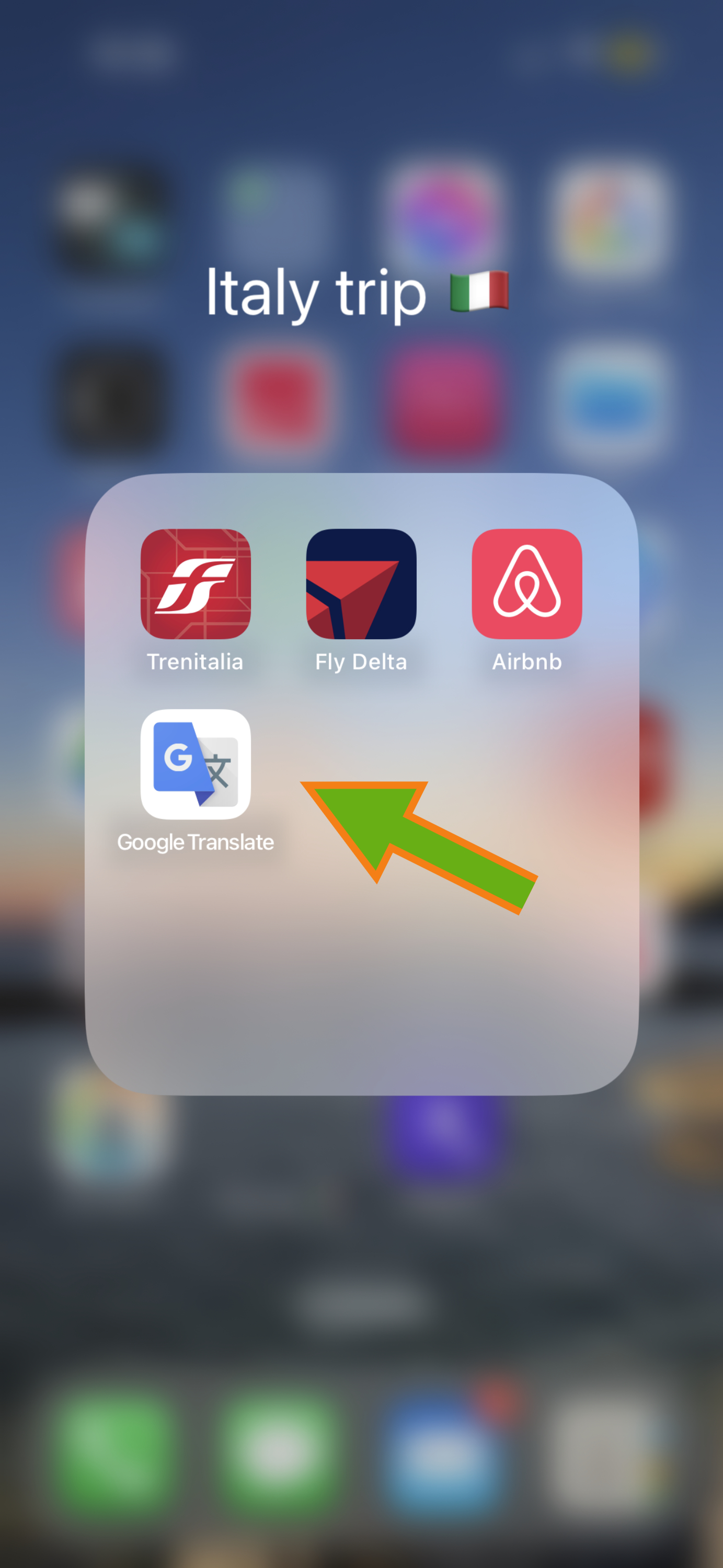
Although English is the second-most spoken language in Italy, that doesn't mean you'll find all Italian citizens speaking it fluently.
After attending a wedding in Florence, we headed to the underrated, beautiful island of Ischia. Although it's not as popular as nearby islands like Capri and Amalfi Coast, it's equally stunning.
During our stay in Sant' Angelo, a quiet, small fisherman's village in Ischia, my boyfriend and I had to rely heavily on Google Translate to communicate. Living like a local was a wonderful experience, as we were not surrounded by American tourists all the time. However, there were instances where it was difficult to communicate certain things, especially my boyfriend's nut allergy when we were out at a restaurant.
Most people assumed that we spoke Italian, so we had to quickly type out what we were trying to convey on the Google Translate app. It didn't really bother us, but it was one of the disadvantages of traveling to a non-touristy area of a country.
2. Do your research and familiarize yourself with the vibe of the city or village you want to visit before getting there.
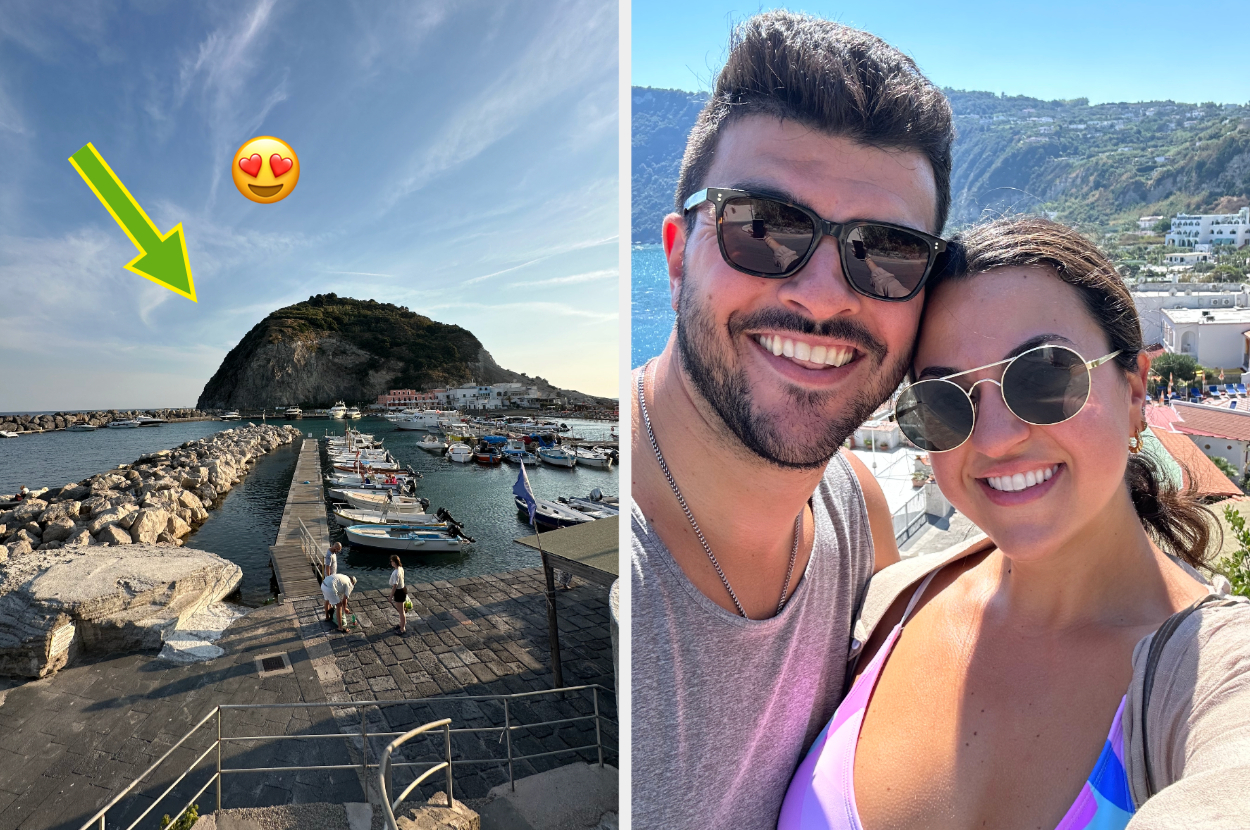
It turns out that although Ischia isn't a very big island (it's only 18 square miles), each village offers something a little bit different. Upon booking where on the island we would stay, I honestly didn't do a ton of research so it wasn't until we got to Sant' Angelo and settled in did we find out that it's a very quiet fisherman's village with stunning beaches — but not much nightlife.
Honestly, this was fine for us because it made for the perfect, most relaxing vacation. Depending on the vibe you're looking for while on your vacation, I recommend doing extensive research first especially if it's in another county.
3. If you're in a city like Florence, it's worth carrying around a reusable water bottle to refill at drinking fountains.
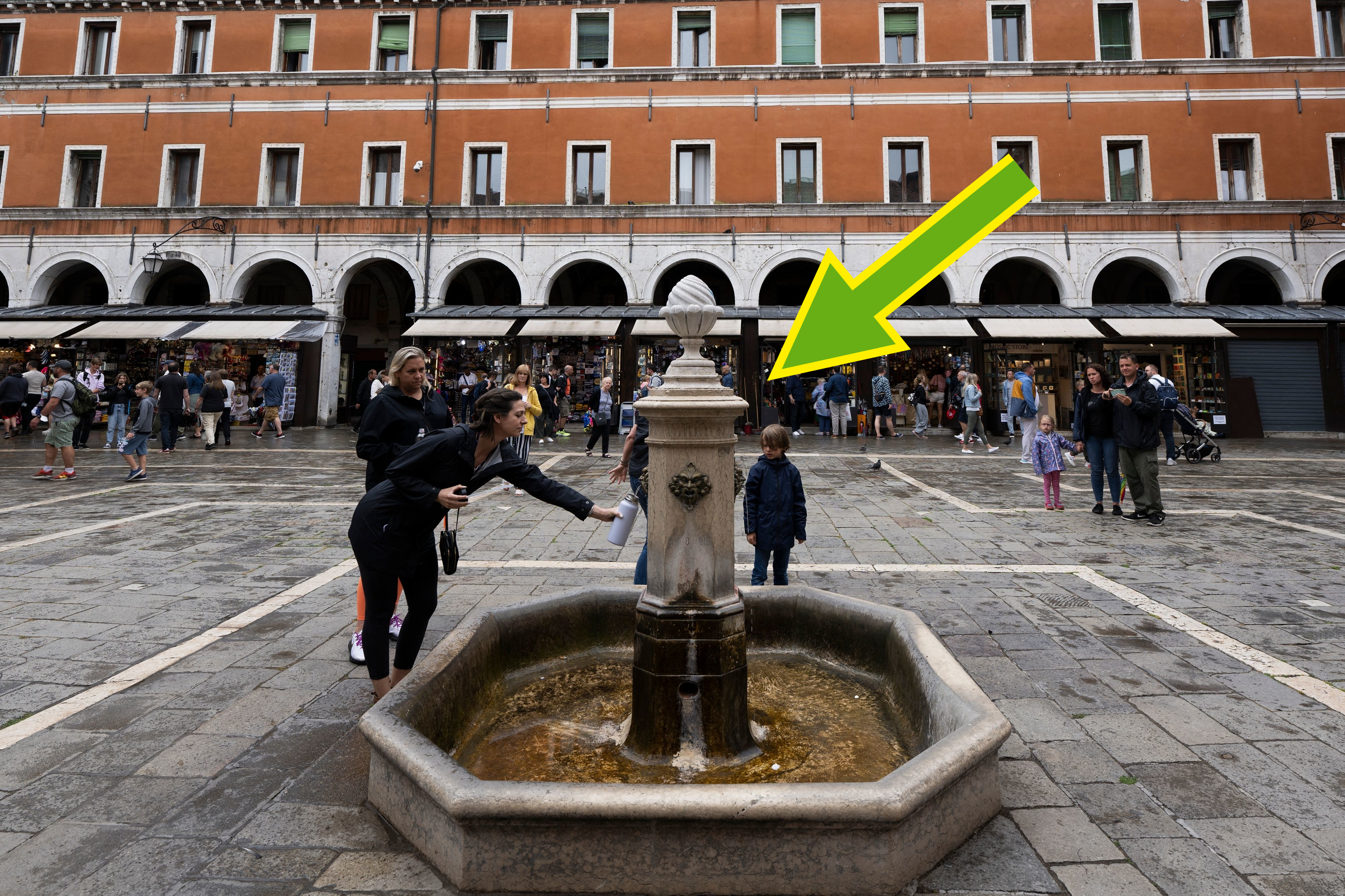
It was particularly useful when walking around in the heat. Additionally, in Italy, you have to pay for water at restaurants, so waiters do not refill your glass as frequently as they do in America. As a result, I was always left thirsty after our meals.
4. If you purchase a ferry ticket online in Italy, you must validate it before boarding.
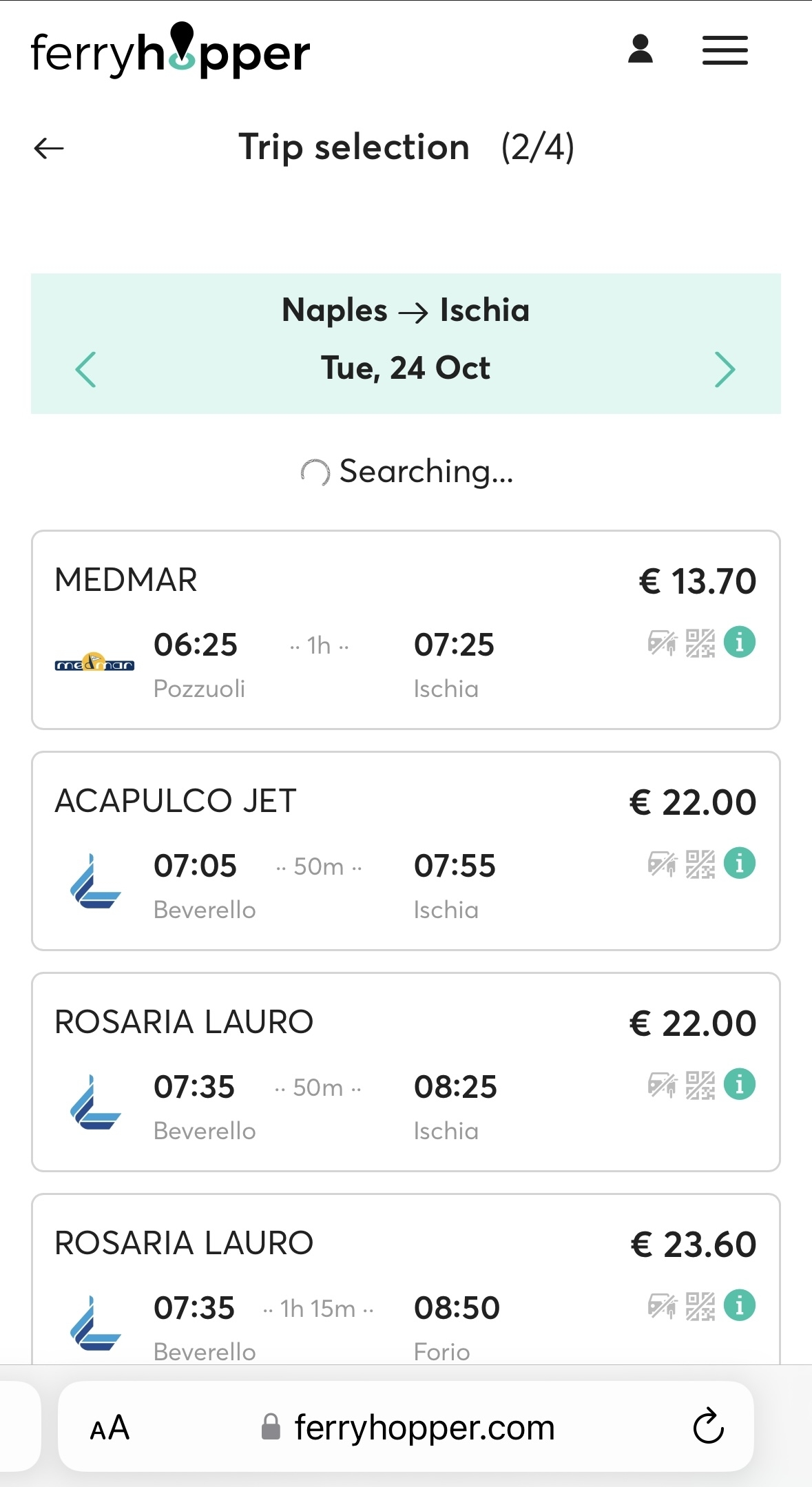
On that note, make sure to give yourself enough time to validate your ticket because the lines get long and those ferries seem to leave right on their scheduled time.
The port in Naples from where our ferry was departing had several other ferries going to popular destinations such as the Amalfi Coast and Capri. As a result, the lines of people waiting to validate their tickets before boarding their respective ferries were quite long.
5. Traveling by train is an easy and quite enjoyable experience.
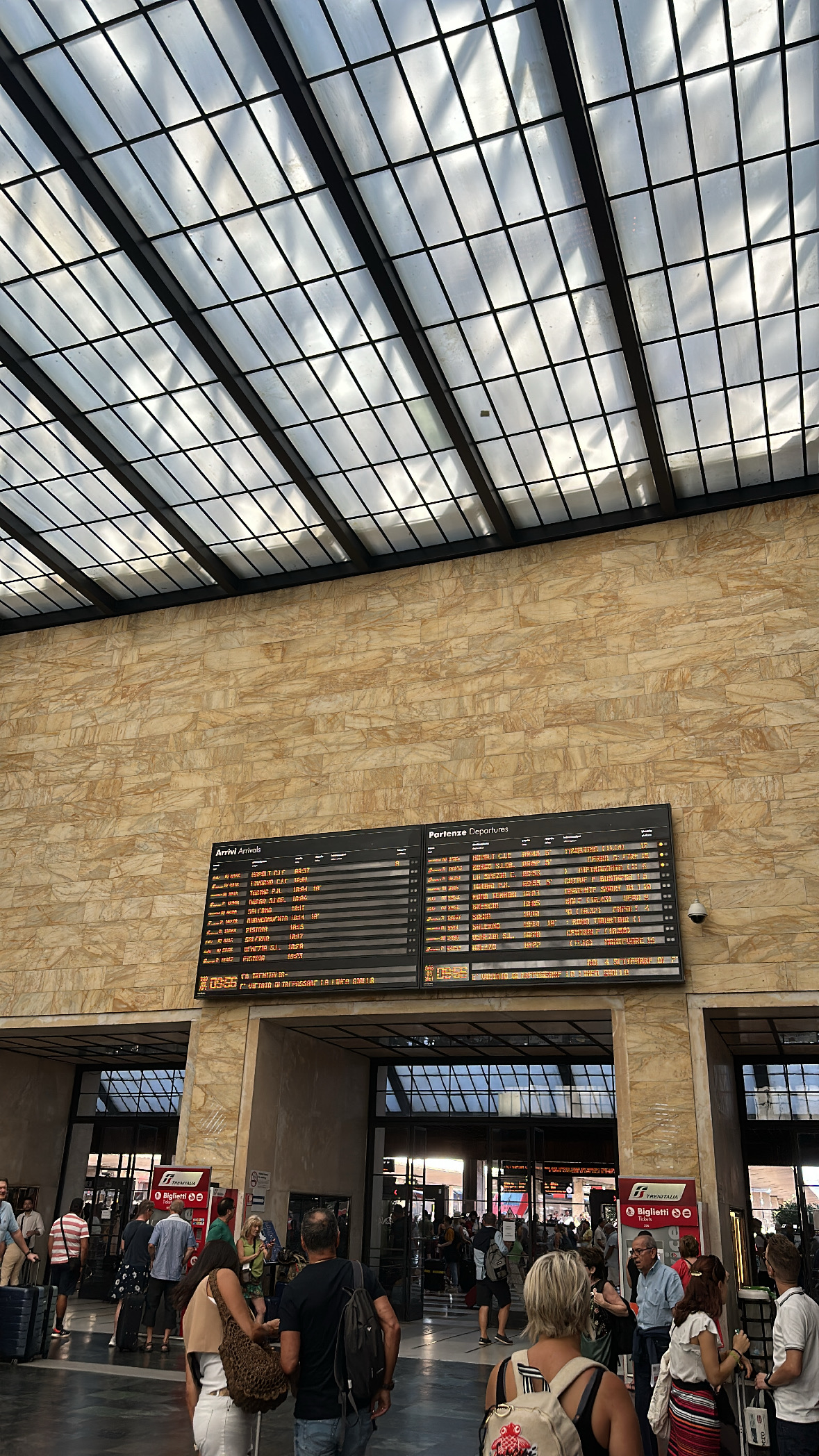
After boarding the train, a conductor came by to validate our digital ticket (you can also print a hard copy if preferred). Despite the crowds, the Italian train stations were not as chaotic or confusing as I had anticipated.
6. Utilize public transportation to save some money.
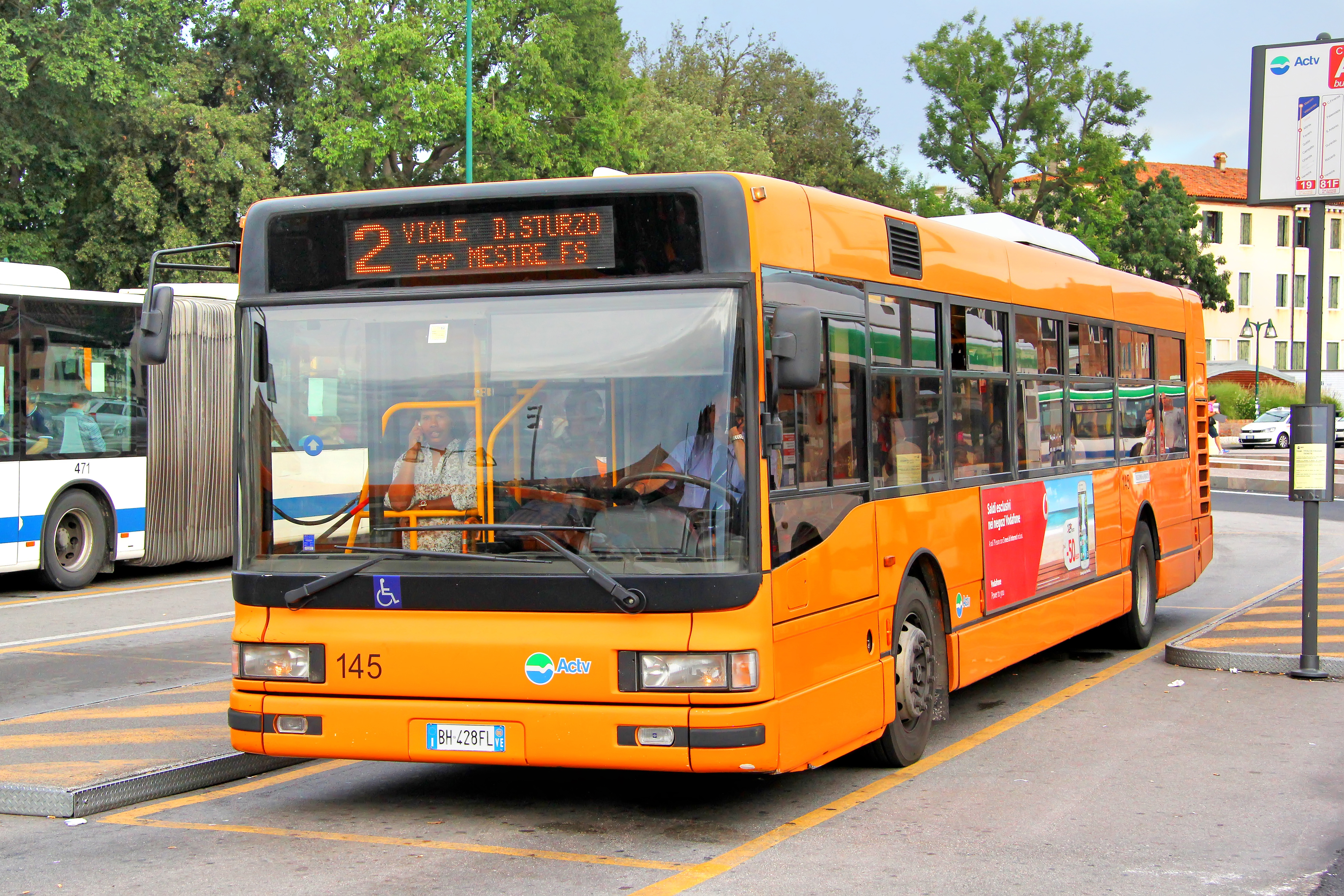
7. Compare the prices of an Airbnb versus a hotel.
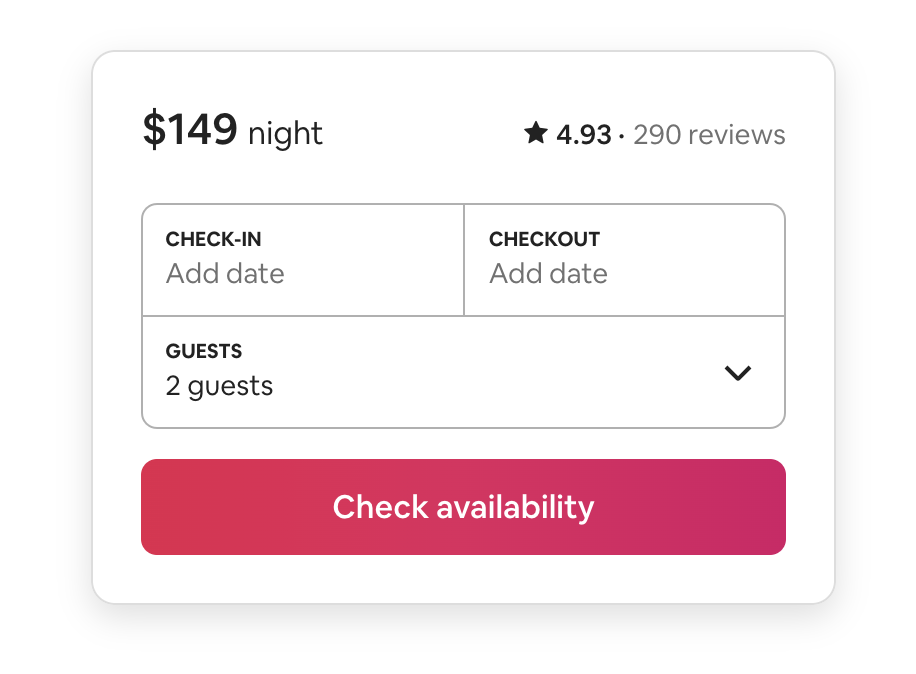
8. Wear (or bring) something that covers your shoulders and knees in churches.
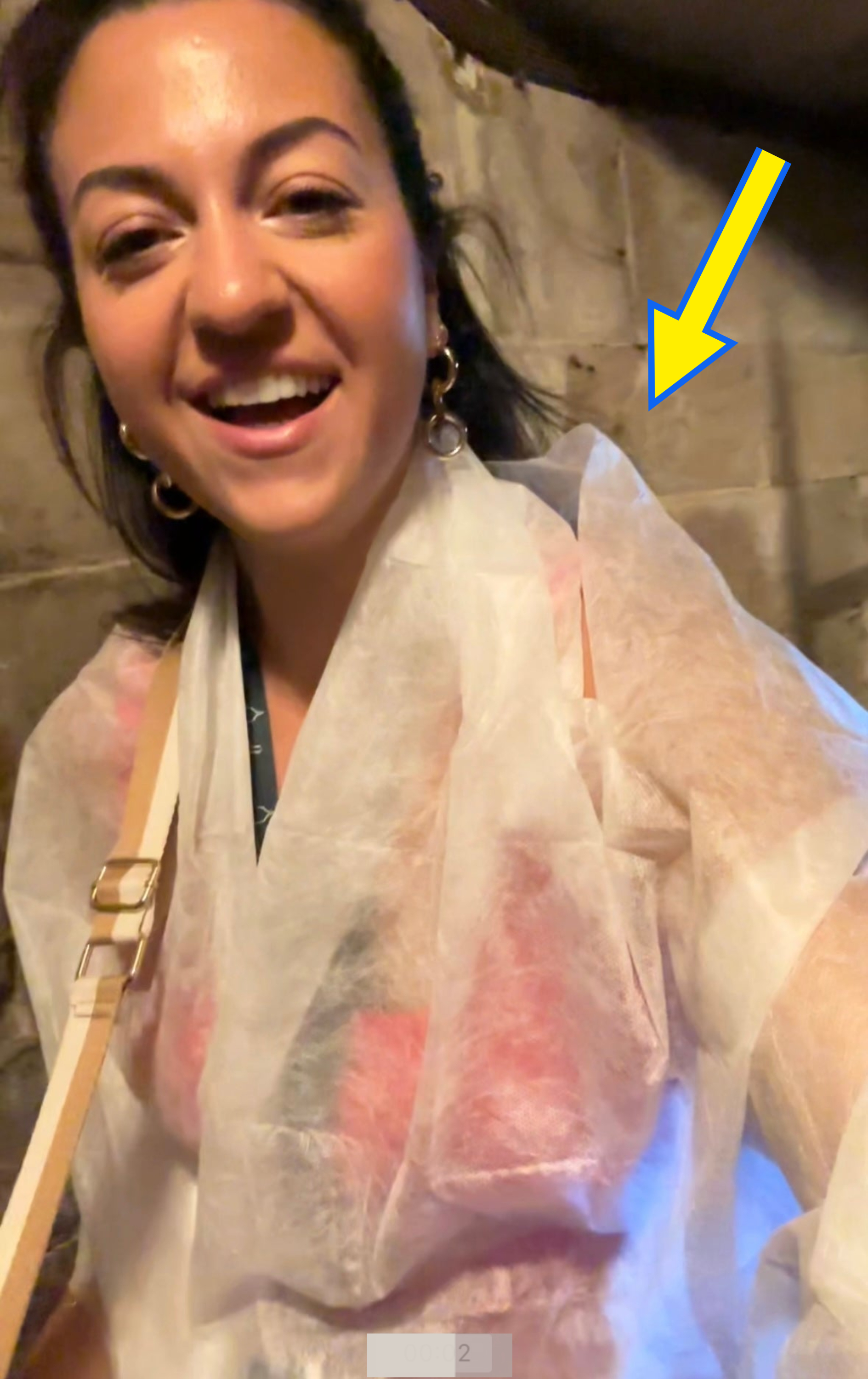
9. If you're traveling in Italy using multiple modes of transportation, add unique identifiers to your luggage to easily differentiate it.
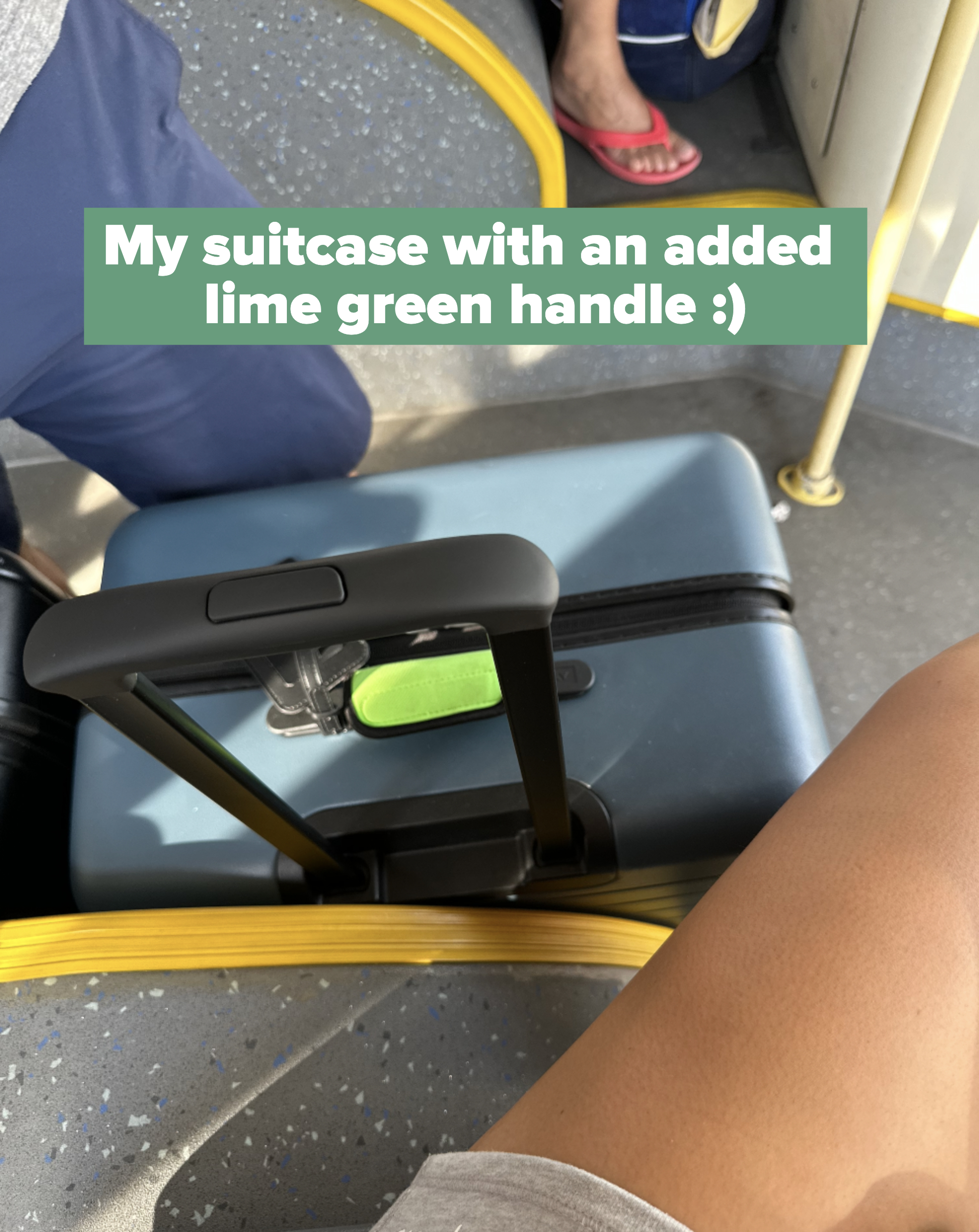
When my boyfriend got off the train in a hurry, he mistakenly grabbed a black hard-shell suitcase that looked similar to his black Away bag. Since he hadn't put anything to distinguish his bag, he ended up taking someone else's bag, and they took his.
To cut a long story short, to swap the luggage, it turned out to be quite the adventure, that we now call "luggage gate." The lesson we learned here is to always put something on your luggage that makes it stand out from similar-looking bags.
10. It's helpful to carry extra euros for situations where cash is needed.

To avoid paying hefty conversion fees at an international ATM, I recommend you order euros from your local bank a few weeks before your trip. Most banks don't have euros on hand, so you'll need to call or visit the bank and ask a teller to order them for you. The euros will be delivered to your home once they arrive. Unfortunately, I didn't know this and had to pay conversion fees at the airport in Rome.
11. A typical breakfast in Italy is very different from an American breakfast.
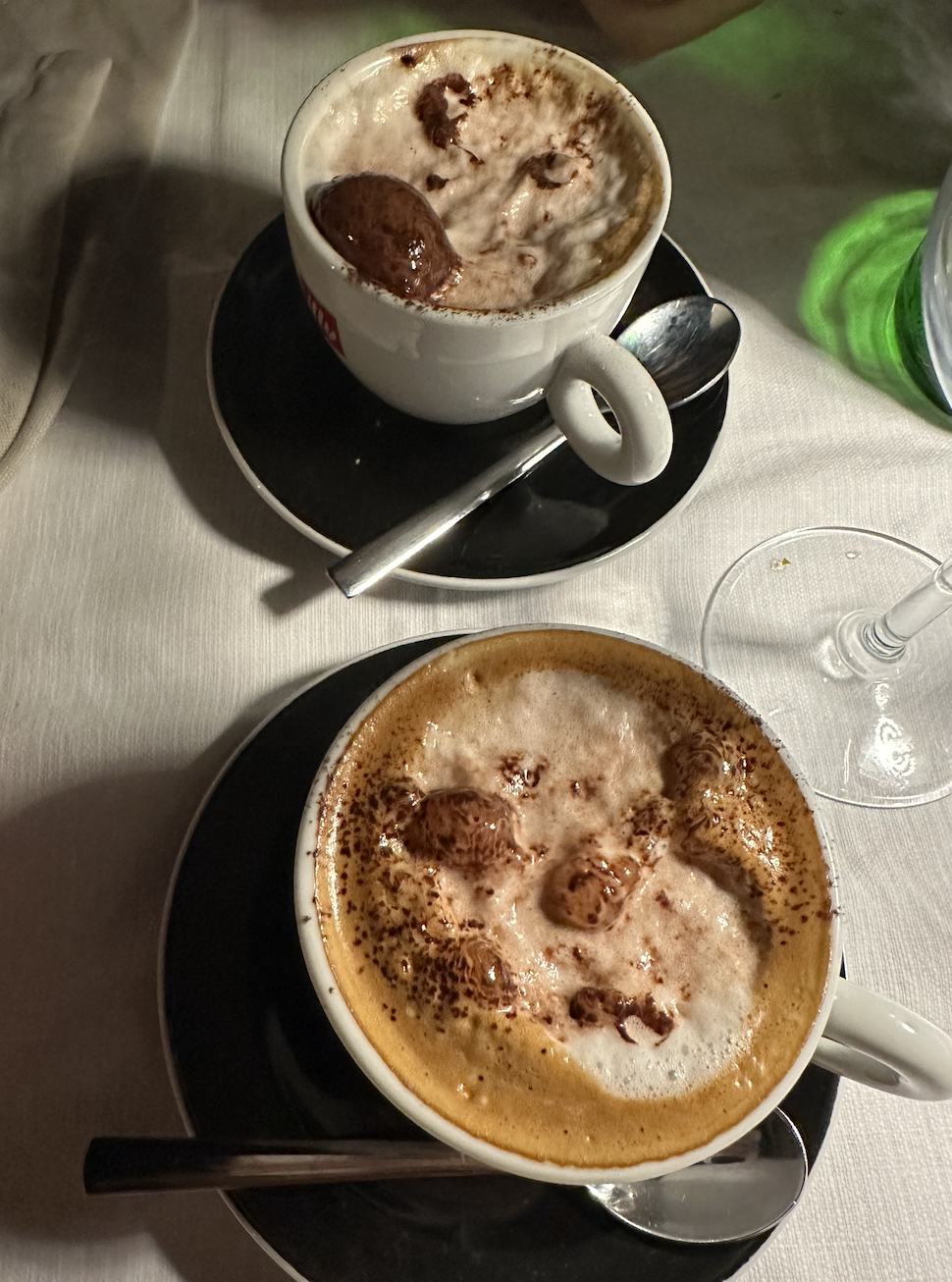
12. Small shops close during the day at lunch and will reopen later in the afternoon — or in our experience, not reopen at all.
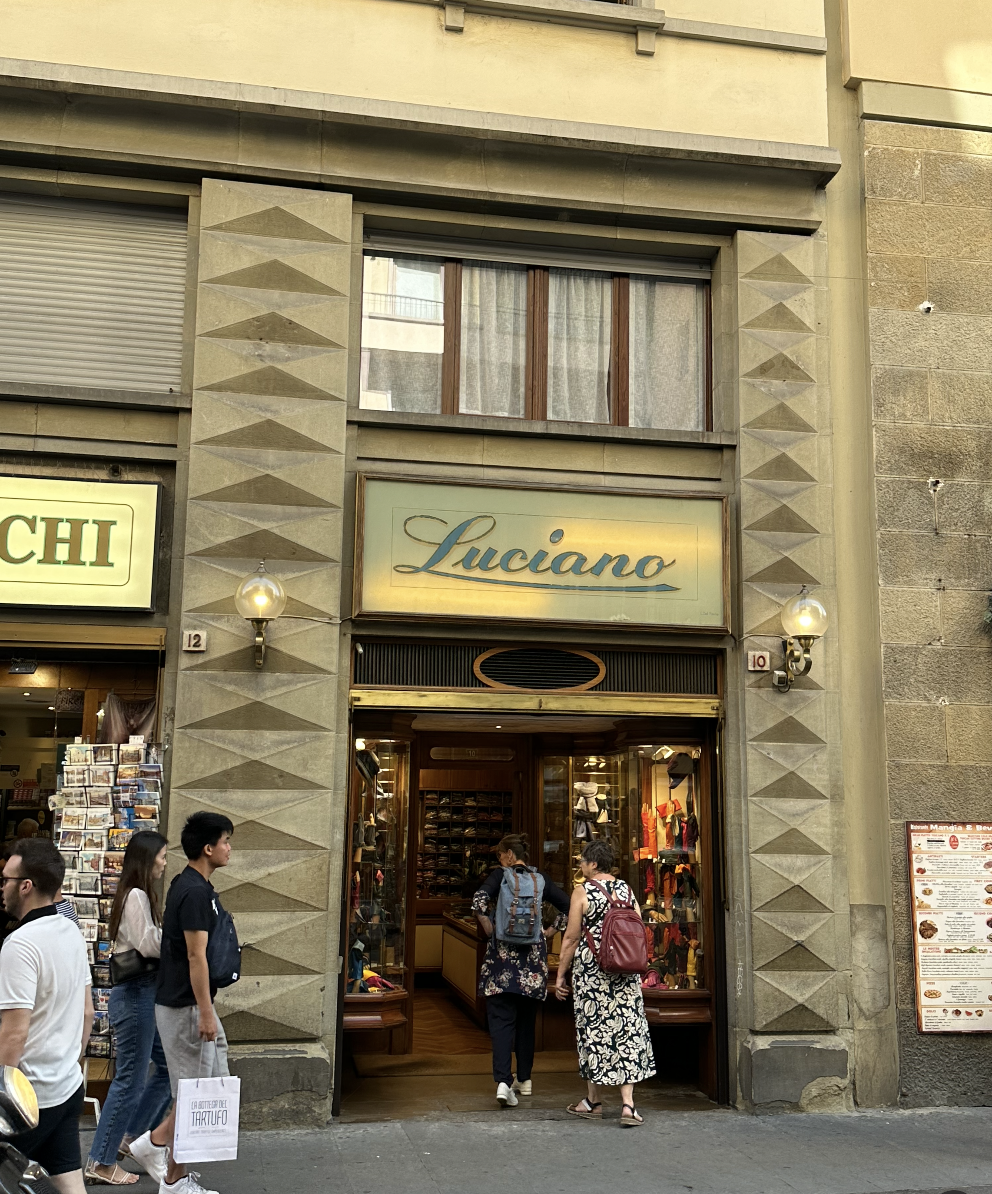
Unfortunately, every time I went back to it to shop, it was either closed for a long lunch break or it was just completely closed, We asked our Airbnb host (who also owned her own boutique in the village we were staying in) and she said for the most part, shop owners make up their own hours of operation. I was kicking myself for not knowing this sooner because I just assumed the boutique I wanted to shop in would of course be open the next day at the same time.
13. There's so much more to Italian cuisine than just pizza and pasta.
